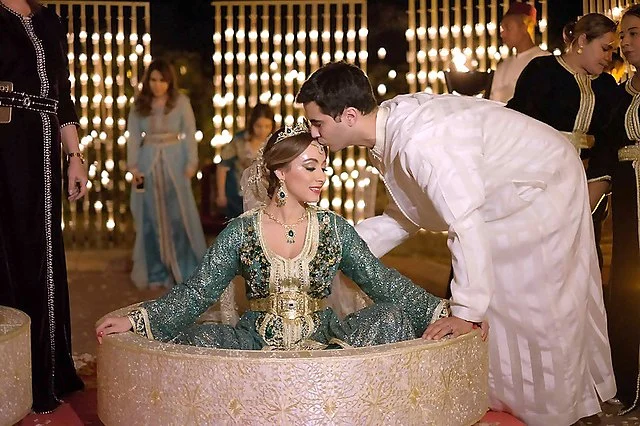In Morocco, marriage is a deeply rooted institution that blends Islamic law (Sharia), Moroccan family law (Moudawana), and cultural traditions. While the most common type of marriage is the Islamic monogamous union, there are various forms and traditional customs that can vary by region, ethnicity, and social background.
Here’s a full breakdown of the types of marriages in Morocco:
1. Monogamous Marriage (Zawaj Wahid)
- Most common and legally preferred form in Morocco today
- One man and one woman
- Governed by the Family Code (Moudawana)
- Requires:
- Consent of both parties
- Written marriage contract
- Two Muslim witnesses
- Presence of a family guardian (Wali) for the bride
- Usually celebrated with religious and cultural ceremonies
2. Polygamous Marriage (Zawaj Polygamie)
- Permitted under Islamic law, but strictly regulated in Morocco
- A man can legally marry up to four wives, but only if:
- The court approves it
- There is a valid reason (e.g., infertility, health)
- The first wife is informed and consents
- Very rare today due to legal and social constraints under the reformed Moudawana (2004)
3. Customary Marriage (Zawaj ‘Urfi / Traditional Marriage)
- Rural or tribal areas may practice this informally
- A couple may live as married without state registration, based on:
- Verbal agreement
- Presence of local elders or religious figures
- Not legally recognized unless later registered with civil authorities
- May cause legal issues regarding inheritance or children
4. Religious Marriage (Zawaj Shar’i)
- Conducted by an Adoul (Islamic notary)
- Includes recitation of Fatiha, marriage sermon, and dowry (Mahr) agreement
- Often followed by civil registration to make it official under Moroccan law
5. Proxy or Long-Distance Marriage
- Sometimes used when one partner (usually the man) lives abroad (e.g., Europe)
- Marriage is performed with legal authorization (Wakil) on behalf of one party
- Must be approved by Moroccan courts and religious authorities
- Common among Moroccan diaspora
6. Mixed or Interfaith Marriage
- A Muslim man may marry a non-Muslim woman (Christian or Jewish)
- A Muslim woman cannot marry a non-Muslim man unless he converts to Islam
- Such marriages often require special authorization and paperwork
- Legal but culturally sensitive, especially in conservative communities
7. Amazigh (Berber) Traditional Marriages
- Celebrated with unique tribal customs, music, and dress
- Often includes multi-day festivals, traditional henna, and symbolic rituals
- Recognized legally once registered, but customs vary by region (e.g., Atlas, Souss, Rif)
Marriage Requirements in Morocco:
- Legal age: 18 years
- Medical certificate (proof of health)
- Dowry (Mahr) agreed upon
- Civil registration through Adoul (notary) and court approval
- National ID or passports (for foreigners)
Fun Fact:
- In Morocco, wedding ceremonies are grand and often span 2 to 7 days, especially in rural areas. Traditional weddings include events like the Henna Night, Amaria ride, and changing into multiple caftans!



